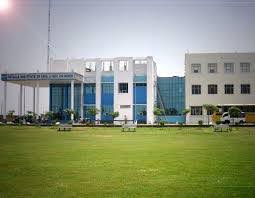The Growing Need for Nephrology Services: How Kidney Disease Affects Millions

The worldwide occurrence of kidney disease continues to grow as it affects millions of people throughout each year. The growing rate of specialized nephrology services becomes alarming because of two major factors: aging populations and increasing rates of diabetes and hypertension. The medical field of nephrology focuses on kidney studies to tackle these medical challenges and enhance life quality for kidney disease patients.
The Rising Burden of Kidney Disease
The World Health Organization (WHO) reports that chronic kidney disease (CKD) stands among the primary health issues resulting in global mortality and morbidity rates. The worldwide prevalence of kidney disease exceeds 850 million people according to current estimates while this figure continues to rise. Kidney disease exists as a health problem that affects people of every age group since lifestyle changes and poor dietary habits and rising diabetes and obesity rates have increased its prevalence.
Uncontrolled diabetes and hypertension function as the primary factors that produce kidney damage because they persistently harm kidney tissues throughout time. The United States has an estimated 1 in 7 adult population with CKD yet many people do not receive diagnosis because kidney disease shows no initial symptoms. People typically notice kidney symptoms like swelling along with fatigue and changes in urination when their kidney function has already suffered substantial damage.
The Role of Nephrology in Managing Kidney Disease
Specialized physicians who specialize in diagnosing and treating kidney diseases are known as nephrologists. Early detection of kidney disease depends on their specialized knowledge which helps prevent permanent damage from developing. Early medical intervention stops kidney disease from developing into end-stage renal disease (ESRD) thus avoiding the need for life-saving treatments like dialysis or kidney transplant.
As part of their service nephrologists work to control the elements that cause kidney disease. Diabetes and hypertension serve as major factors leading to kidney damage and nephrologists guide patients in treating these conditions by providing medication and lifestyle guidance alongside regular monitoring.
The Growing Demand for Nephrology Services
The rising prevalence of kidney disease creates an all-time high need for nephrology care. The National Kidney Foundation indicates that CKD stands as the ninth primary reason for mortality in America while affecting more than 37 million citizens. A significant number of people who face kidney disease risks remain undiagnosed and under-treatment despite the fact that they need proper medical care. The rising need for nephrology services has resulted in specialist shortages throughout different areas because early detection and ongoing nephrologist care remain essential for stopping kidney failure progression.
The number of elderly people contributes to an escalating situation. The increasing lifespan of people leads to higher kidney disease incidence which generates a need for additional nephrologists to handle this expanding patient group. The United States requires more than 50% additional nephrologists by 2030 to maintain sufficient service delivery levels. Many rural parts of the world along with developing nations face restricted nephrology care availability which results in population-wide kidney health management resource shortages.
Challenges in Kidney Disease Management
The fight against kidney disease faces substantial obstacles because people remain unaware about kidney health significance. The majority of people do not understand their kidney disease risk factors while only a small number recognize the necessity of scheduling regular kidney tests. People with early-stage kidney disease usually do not display symptoms until the disease reaches an advanced stage because initial symptoms are rarely detectable.
Managing kidney disease needs collaboration among nephrologists and dietitians and social workers and other healthcare professionals in order to be successful. The treatment of kidney disease includes disease management and patient support for adopting healthier lifestyles and following medication protocols and dietary adjustments to reduce kidney strain.
The Path Forward: Investing in Nephrology Services
Investment in nephrology services remains essential because kidney disease shows no sign of slowing down. The future of nephrology requires expanding the number of trained nephrologists and increasing availability of kidney care services in underprivileged areas while simultaneously raising public knowledge about kidney health. Regular screening programs for at-risk populations including those with diabetes and hypertension and those with kidney disease family histories should be encouraged as a preventive measure against kidney failure.
The fight against kidney disease receives hope through technological advancements in nephrology which include better dialysis treatments and new pharmaceutical developments. The reduction of healthcare system strain will require essential research focused on kidney disease prevention and early diagnosis and treatment approaches.
Suggested Read: hospitalist
Conclusion
The worldwide prevalence of kidney disease continues to grow at an alarming rate because this condition affects millions of people across the globe. The escalating numbers of diabetes and hypertension patients create a rapidly growing need for nephrology services which poses a major healthcare concern. The healthcare system faces challenges in meeting current nephrological service needs because these specialists serve as essential diagnosticians and managers of kidney disease while working to prevent its development. The crisis requires investments in nephrology services and awareness initiatives about kidney health and accessible specialized care to stop kidney disease from worsening. This strategy will lead to better health results for kidney disease patients across the world and decrease the sustained healthcare system costs.









